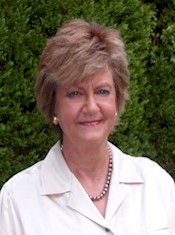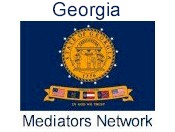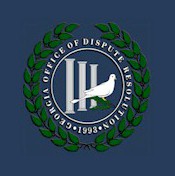| |


 |
From the Director:
Mediators and the New Child Abuse Reporting Law
Governor Deal recently signed
HB1176, which
in part amends the “mandated reporter law” for child abuse and
neglect, O.C.G.A. §19-7-5. The
amended law takes effect July 1, 2012. HB1176 adds definitions for
some organizations whose employees and volunteers are required to
report child abuse and neglect.
Here’s a
link to the relevant section of HB1176 (underlined text has been
added, and crossed out text has been deleted).
Mediators are not mentioned specifically in the current law. GODR has
always advised that mediators as a profession are not legally required
to report child abuse or neglect, while adding that some mediators may
be required under the law to report abuse because of other
professional hats they wear (i.e., teacher, doctor, dentist,
counselor, police officer, etc.). Those professionals are always
mandated to report abuse regardless of whether they are serving as
mediators of court cases.
Mediators are also not mentioned specifically in the amended law.
However, language in the new law is so broad that
mediators have asked if it could be
interpreted to require that court mediators as a profession report
child abuse and neglect. Their concerns focus on the newly
added definition for child service organization personnel:
(5)
'Child service organization personnel' means persons employed by or
volunteering at a business or an organization, whether public,
private, for profit, not for profit, or voluntary, that provides care,
treatment, education, training, supervision, coaching, counseling,
recreational programs, or shelter to children.”
After talking with some experts, it seems a bit of a stretch to fit a
court or court ADR program into this new definition of a business or
organization, and therefore it also seems a stretch to consider court
mediators to be personnel of such organizations. Also, mediators do
not engage in the activities or provide the services described in the
definition. Moreover, in mediating disputes where children are
parties and participants, the mediators’ contact with the child is
severely limited, with no expectation of the kind of ongoing
professional relationship implied by the services listed.
So under the new law, we would still advise that mediators as a
profession are not mandated reporters of child abuse and neglect. Of
course, we can agree that reporting suspected child abuse or neglect
is generally a good thing to do. And if you want to be cautious and
conduct yourself as if you as a mediator are a legally mandated
reporter, then you are free to do so. Nothing prohibits you from
reporting suspected child abuse or neglect to the proper authorities.
The ADR Rules create an exception to the confidentiality obligations
of mediators:
B. Exceptions to Confidentiality:
Confidentiality on the part of program staff or the neutral does not
extend to the issue of appearance. Confidentiality does not extend to
a situation in which
a) there are threats of imminent violence to self or
others; or
b) the mediator believes that a child is abused or that
the safety of any party or third person is in danger.
Be
sure to discuss the confidentiality exceptions in your mediator’s
opening statement and include it in your agreement to mediate or
mediation guidelines that participants sign before beginning the
mediation. If you are a mandated reporter, or your policy is to
conduct yourself as if you are a mandated reporter, tell the
participants.
Remember that accusations of child abuse and neglect are serious and
should not to be made casually. If you are unsure if abuse or neglect
is occurring, take a quick break and discuss the situation with your
local court ADR program director. Court
programs routinely assist mediators who have reason to make a referral
and support their mediators regardless of their mandate.
To report suspected child abuse or neglect:
* If
you believe a child is in immediate danger, call for a break in the
mediation and call 911 right away.
* If
you do not believe a child is in immediate danger, report your
suspicions to your local ADR program director, and together you should
call the Department of Family and Children’s Services (DFCS) as soon
as possible within 24 hours:
--
During regular DFCS office hours (weekdays 8 a.m.-5 p.m.) call the
DFCS office in the county where the child lives or the county in which
the suspected case of abuse/neglect is witnessed. Contact information
for county DFCS offices can be found
here.
--
Outside of regular DFCS office hours (weekdays 5 p.m.-8 a.m., anytime
on weekends, holidays, and furlough days) call the
DFCS Child Protective Services After-Hours Call Center at 1-855-GA
CHILD (1-855-422-4453):
More
information can be found at the
DFCS website.
Shinji
Morokuma, Director, GODR
gaodr@godr.org
|
|
 |
Income Withholding Procedure for Child Support
Most of you are already aware that Federal Office of Child Support
Enforcement (OCSE) and the Office of Management and Budget (OMB)
issued a revised Income Withholding Order (IWO) on May 31, 2011, that
is required to be sent to employers with ALL income deduction orders
issued on or after May 31, 2012. The consequence of not using the
required IWO form is that the employer must reject the income
deduction order and return it to the sender, potentially causing an
unnecessary delay in the custodial parent receiving the child support.
Income deduction is and continues to be a complicated, burdensome
procedure. This additional requirement does nothing to alleviate
that. However, inspired by the release of the revised IWO and the
potential consequences of not following the procedure correctly, we
collaborated with the Georgia Division of Child Support Service (DCSS)
to create a guideline to help streamline this process. We are hopeful
that you will use this guide in your practice and will find it
helpful. Click here for the guide.
The guide, along with frequently asked questions, forms and other
resource materials are also available at the following website:
www.georgiacourts.gov/csc/iwo.
Special thanks to DCSS Legal Policy Specialist Stephen Harris, Child
Support Guidelines Coordinator Elaine Johnson with my office, and the
rest of our workgroup for their contributions to this project. As
always, we welcome your comments and feedback.

Alice W.
Limehouse |
|
Alice W. Limehouse
Staff Attorney to the Child Support Commission/ Collaborative
Child Support Project Manager
Administrative Office of the Courts
244 Washington Street, S.W., Suite 300
Atlanta, GA 30334
Direct: 404-463-0040
Fax: 770-357-7331
alice.limehouse@gaaoc.us |
| |
|
|
|
 |
Should
Mediation Go to the Dogs?
Hospitals, medical
centers and mental health agencies have long used therapy dogs to help
reduce stress, anxiety, and even pain in their patients. Now schools
like
Emory University Law School are seeing the benefits of inviting
specially trained dogs onto campus to help stressed-out students deal
with the academic pressure cooker.
So why not
bring dogs into mediation? That’s the audacious idea proposed by
California attorney, mediator and arbitrator Mitchell Chyette in his
blog post “Getting to Woof.” They help parties deal with the
rigors of the mediation process, he proposes that mediation include
not just therapy dogs but even the family pet, especially when
children are involved in the mediation process.
Aside from the
practical issues – allergies, access to courthouses – what do you
think of the idea? Should mediation go to the dogs?
|
|

|
ACR-GA Hosts
Workshop on Biblical Conflict Resolution
The Association for Conflict Resolution’s Georgia Chapter is
sponsoring a seminar titled, “The
Way
to
Resolve Conflict: Workshop on Resolving Conflict Using Biblical
Principles,” on Saturday, June 16, from
9 am to 2 pm, at the Merle Manders Conference Center, 111 N. Davis
Dr., Stockbridge, GA 30281. 4 hours of neutral CE is available. The
workshop is free to ACR-GA members. The cost is $25 for non-members
(includes lunch), but the workshop fee is included for new/renewing
members who pay their annual dues of $50. ACR-GA’s annual meeting
will be held immediately after the workshop from 2:15 to 4 pm. For
more information, go to
this link or contact
www.acrga.net.
|
|
 |
CaseWatch for Mediators:
Self-Employment Income Complicates Child Support Calculations
Child support negotiations can be among the most heated in mediation.
And difficult income calculations can become even more daunting when
one or both parties to a divorce are self-employed. In this month’s
CaseWatch for Mediators, Mary Ellen Cates, Esq., divorce attorney and
registered mediator, examines a Supreme Court case that shows how one
trial court cut through the conflicting information to arrive at a
just level of child support.
|
|
 |
CaseWatch for Arbitrators:
Arbitrator Can Interpret Contract Text to Allow Class Actions, Court
Says
Arbitration clauses, designed to simplify and clarify the process when
disputes arise under a contract, can themselves be the source of
headaches, especially if they are ambiguously or poorly drafted. In
this month’s CaseWatch for Arbitrators, John Allgood, Esq., veteran
attorney, registered mediator and arbitrator, examines a recent
federal circuit case that reveals what powers arbitrators can wield
when the arbitration provisions are murky.
|
|
 |
Marketing Tip:
E-Marketing v. Your Physical Safety
In our competitive
business environment, you must be aggressive in marketing yourself
using the latest in online technology and social media. But in
putting your professional name out there, are you putting yourself and
your loved ones in personal danger? In this month’s Marketing Tip,
master marketer and mediator Michele Gibson tells you how you can
balance your desire for professional exposure with your need for
personal privacy and security.
|
|
 |
Theory to Practice:
A Spoonful of Sugar Makes the Mediation Go Round
Do you ever get tired of making decisions? It turns out that choosing
takes energy, and if you’re forced to make too many decisions, your
brain can run out of gas. Your mediation parties have to make
decisions, often lots of very difficult ones under stressful
circumstances. How can you help them to combat “decision fatigue” and
to get on with the work of mediation? In this edition of Theory to
Practice, Heather Pincock, assistant professor of conflict management
at Kennesaw State University, highlights research that confirms the
healing power of ... sugar ... in rejuvenating people’s ability to
make decisions.
|
|
 |
GODR MEMBER BENEFIT SPOTLIGHT – PET INSURANCE
VPI Pet insurance - 5% discount for members and employees of members
GODR Registered Neutrals and employees of members seeking medical
coverage for their pets may qualify for a 5% group discount with the
leader in Pet Health insurance, VPI Pet insurance. A VPI Pet insurance
policy helps pay for your pet's treatments, surgeries, lab fees,
x-rays, and much more. VPI provides peace of mind knowing you can care
for your pet no matter what the cost.
• Group discount of 5%.
• Freedom: Free to use your choice of licensed veterinarian (no
pre-approval necessary).
• Flexibility: VPI's plans are licensed in all 50 states.
• Additional savings: Receive discounts when enrolling multiple pets -
up to 5% and 10%.
• Extras: Enjoy discounts on pet products and services, a policyholder
newsletter, online support, and more.
Get
a Quote Online >
Program is administered through VPI Pet Insurance, the nation's oldest
and largest provider of Pet Health insurance.
If links in this email are not working, please visit
www.memberbenefits.com/godr
Products sold and serviced by BPC Financial, the administrator of the
Georgia Office of Dispute Resolution (GODR) Insurance Programs. GODR
is not a licensed insurance entity and does not sell insurance.
|
|


|
Publicly Available
Resources for Georgia ADR Professionals
We encourage you to visit the
blog created by Georgia State University law professor Doug Yarn
and GSU law students Alex Salzillo and Alicia Mack to inform and
encourage discussion. Please add it to your reading list, send the
link to your colleagues, and visit often. The address:
http://georgiaadr.wordpress.com/
And
don’t forget the
Georgia Mediators Network, a great Facebook resource for the
latest mediation news and articles from around the world. The page
has been visited tens of thousands of times in just the few short
months it’s been around. Use the information there to pump your own
professional web pages and your expertise. The Georgia Mediators
Network is the brainchild of registered mediator Michele Gibson, our
marketing columnist and newsletter producer.
|
|
 |
Benefits: Exclusive
Insurance Products for Registered Neutrals
Georgia-registered neutrals are entitled to participate in several
insurance and retirement programs that have been designed specifically
for them. If you need insurance, are planning for retirement, talk to
the experts at
BPC Financial. They manage our new exclusive insurance and
retirement program, and they can advise you on your insurance needs
and help you find good deals on major medical insurance, healthcare
savings accounts, dental and vision insurance, term life insurance and
more. Registered neutrals receive the benefits of underwriting
concessions, enhanced benefits, or reduced premiums and fees compared
to shopping for similar products on the open market. Check out the
GODR Registered Neutrals Insurance and Retirement Programs website.
We’ve also arranged for special benefits on professional liability
insurance for registered mediators and arbitrators with
Complete Equity Markets. See our
website for more information or contact
Betsy Thomas, 800-323-6234, ext. 472, and tell her you’re a
Georgia registered neutral!
|
|
 |
Upcoming CE and Training Offerings
Check frequently at our
website for the latest CE and training offerings. Remember, any
ADR-related training you take counts as CE as long as you took it
since your last renewal or your initial registration, whichever comes
later. Lawyers, any CLE you took during that same time period counts
as CE. Likewise, judges and CJE. Accountants and other professionals
with CE requirements, same thing.
And remember, we posted three videos on our website that registered
neutrals can watch for free to earn CE credit. Each video is one-hour
long. Neutrals are free to watch the videos as many times as they
wish, but we can only award 1 CE hour credit for each video once a
renewal season. Please note the date you finished viewing each video
so you can report it on your renewal form. Remember, registered
neutrals are required to take at least 3 hours of CE each year in
order to renew their registrations. Look for the link,
“Continuing Education Videos,” in the main menu of our website.
For more information on what qualifies for CE, please see the
“Help! I Need CE!” link on our website.
|
|
 |
Be Neutral
Back Issues Available Online
Be Neutral
is sent monthly to all registered neutrals, generally at the beginning
of the month. If you missed an issue, our back issues are posted at
the bottom right of our website, under
“Newsletter Archive.” Please take a look. If you know people who
want Be Neutral, please direct them to our subscription box at
the bottom right of our
website, where they just need to enter their e-mail addresses.
Please forward this newsletter to anyone who might be interested in
ADR in Georgia courts. Forward it just as you would any other
e-mail. If folks who are not registered neutrals want to receive the
newsletter free of charge, they can submit their e-mail addresses in
the subscription box at the bottom right of our
website. And sending us feedback is easy – just reply to this
e-mail as you would any other e-mail. We want to hear from you!
|
|
|
Spread the Word
Please forward this newsletter to anyone who might be interested in ADR in Georgia courts. Forward it just as you would any other e-mail.
If folks who are not registered neutrals want to receive the
newsletter free of charge, they can use the subscription box at below this
text or submit their e-mail addresses in the
subscription box at the bottom right of the home page of our
website. And sending us feedback is easy – just reply to this
e-mail as you would any other e-mail. We want to hear from you !
|
|

|
|
|